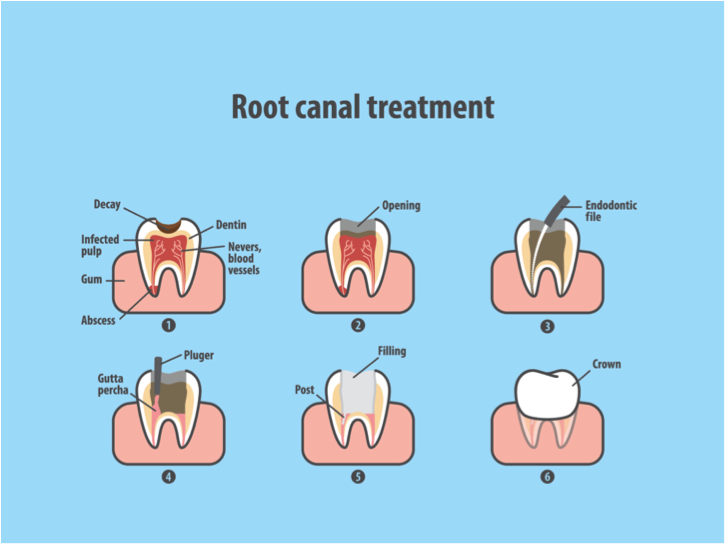Root Canal Therapy

When we get a tooth ache or the nerve inside the tooth has become traumatized to the point of non-recovery, we often can still save the tooth by performing a root canal therapy. If left untreated the nerve of the tooth can become necrotic (no long alive) and form an abscess or a cyst if left untreated.
An infected tooth with an abscess does not always cause any pain. However, the abscess can slowly erode away the bone around the tooth leading to bone loss and loose teeth. This can affect adjacent teeth health permanently.
So What is a Root Canal Therapy?
A root canal therapy involves the removal of the dead or dying nerve tissue. Thoroughly disinfect the inside of the tooth. Then seal the tooth with an inert biocompatible sealer. This process allows the tooth to remain in the mouth without creating an infection. Once the root canal is done, a permanent restoration such as a crown or filling can be placed to protect the tooth.
Does it hurt?
The answer is NO. Root canal therapy like all other dental treatments are performed under profound local anesthesia (freezing or numbing). In cases where a root canal treatment needs to be done on a tooth that is throbbing or hurting, extra anesthetic is used to ensure full anesthesia before the root canal therapy. Antibiotics or other anti-inflammatories may be prescribed by Dr. Huang or Dr. Wu to ensure the infection is well under control, and that profound numbing can be achieved.
How long is the tooth good for after Root Canal Treatment?
Root canaled tooth if properly cared for and restored can be maintained in the mouth indefinitely. The tooth is still susceptible to decay, fracture, or possibility of reinfection (although small).
Is a Root Canaled tooth healthy for my body?
A root canaled tooth is completely sealed and sterile. No documented allergic reaction or long lasting toxicity are linked to root canal therapy or health of the body.
